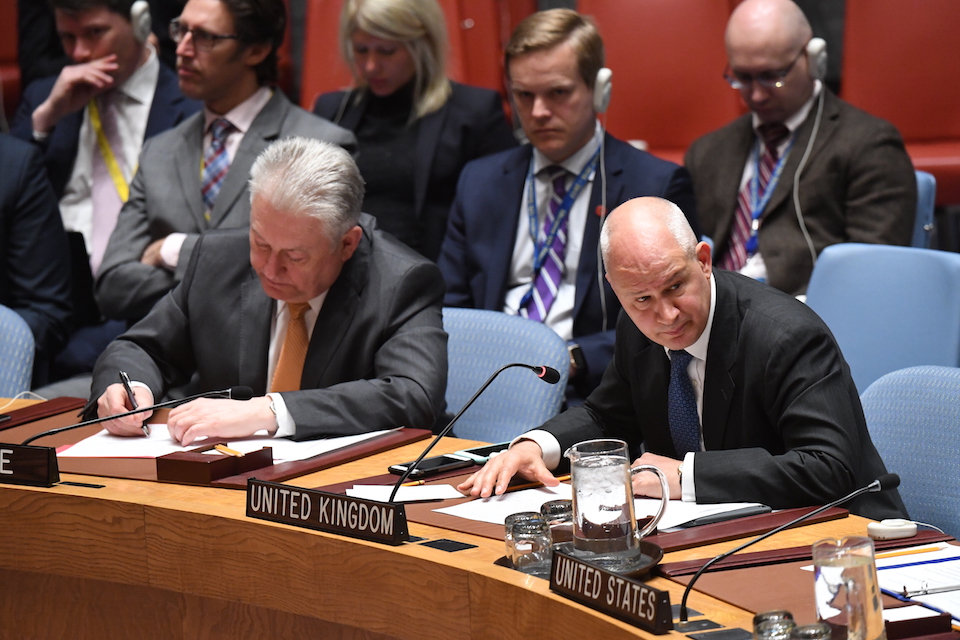"The spectre of biological, chemical, or nuclear materials falling into terrorist hands is the nightmare scenario."
Statement by Ambassador Peter Wilson, UK Deputy Permanent Representative to the United Nations, at the UN Security Council open debate on Non-proliferation of weapons of mass destruction.

Thank you Mr President. Thank you also to USG Nakamitsu and her team, and particularly to Joe Ballard. It’s always good to have the OPCW with us here in this Chamber and the cooperation between our institutions is vital.
While this agenda item is a regular feature of this Council’s programme of work, there is in fact nothing regular about it. The spectre of biological, chemical, or nuclear materials falling into terrorist hands is the nightmare scenario for many of us in this Chamber.
The use of such materials by terrorists is sadly not a hypothetical. Thanks to the hard work of the Joint Investigative Mechanism in Syria we know what happens when terrorists’ hateful intent is paired with these equally hateful weapons. We saw the results in Daesh’s sulphur mustard attack on Marea in August 2015, leaving residents blistered and burning. Other cases are also under investigation.
Clearly, preventing weapons of mass destruction falling into terrorist hands is a vital lynchpin for preserving international peace and security.
That’s why it’s so crucial that, following the Comprehensive review and the adoption of resolution 2325, the Committee focuses on reaching the ultimate goal of full worldwide implementation; turning 1540 into reality. As the Committee does this, it must take account new and emerging challenges from the evolving terrorist threat and advances in science and technology.
The Committee must also look to improve technical assistance, including by strengthening the 1540 Committee’s process for matching Member States’ requests for support with offers for assistance. And we must do all we can to encourage Member States to submit their reports on national implementation of 1540. That applies in particular to those few remaining states yet to submit a national report.
So there is a lot to do, Mr President. But the Committee shouldn’t do it alone. Indeed, the challenges we face are far too great to just rely on the 15 governments around this table. We must strengthen regional and international cooperation and outreach to civil society and industry to support implementation efforts. Every country and every sector has a role to play and we should embrace their help.
Mr. President,
While we must take every step to ensure that these terrible weapons never fall into the hands of terrorists, we must also never overlook the horrific, and sadly growing, allegations of use of these weapons by state actors.
The United Kingdom unreservedly condemns the use of any chemical weapon in any circumstance. In particular, we’re horrified at reports that Kim Jong Nam was apparently killed with VX in Malaysia earlier this year. If it’s confirmed that a nerve agent, one banned by the Chemical Weapons Convention, was used at the instigation of a state, then this would be yet another troubling rejection of international norms.
The United Kingdom has also concluded that the Assad regime has continued to use chemical weapons against its own people, in breach of international law and the rules of war. We look forward to receiving further reporting from the OPCW Fact Finding Mission on chemical weapons use in Syria. Once we have the results of those investigations, the international community must then send a united response.
Let me close by calling on the 1540 Committee to redouble its efforts. The United Kingdom is committed to playing our part in ensuring that the Committee succeeds in its vital task ahead. The cost of failure, of allowing further weapons of mass destruction to fall into the hands of those who wish to wreak havoc, is simply too high to bear.
Thank you.